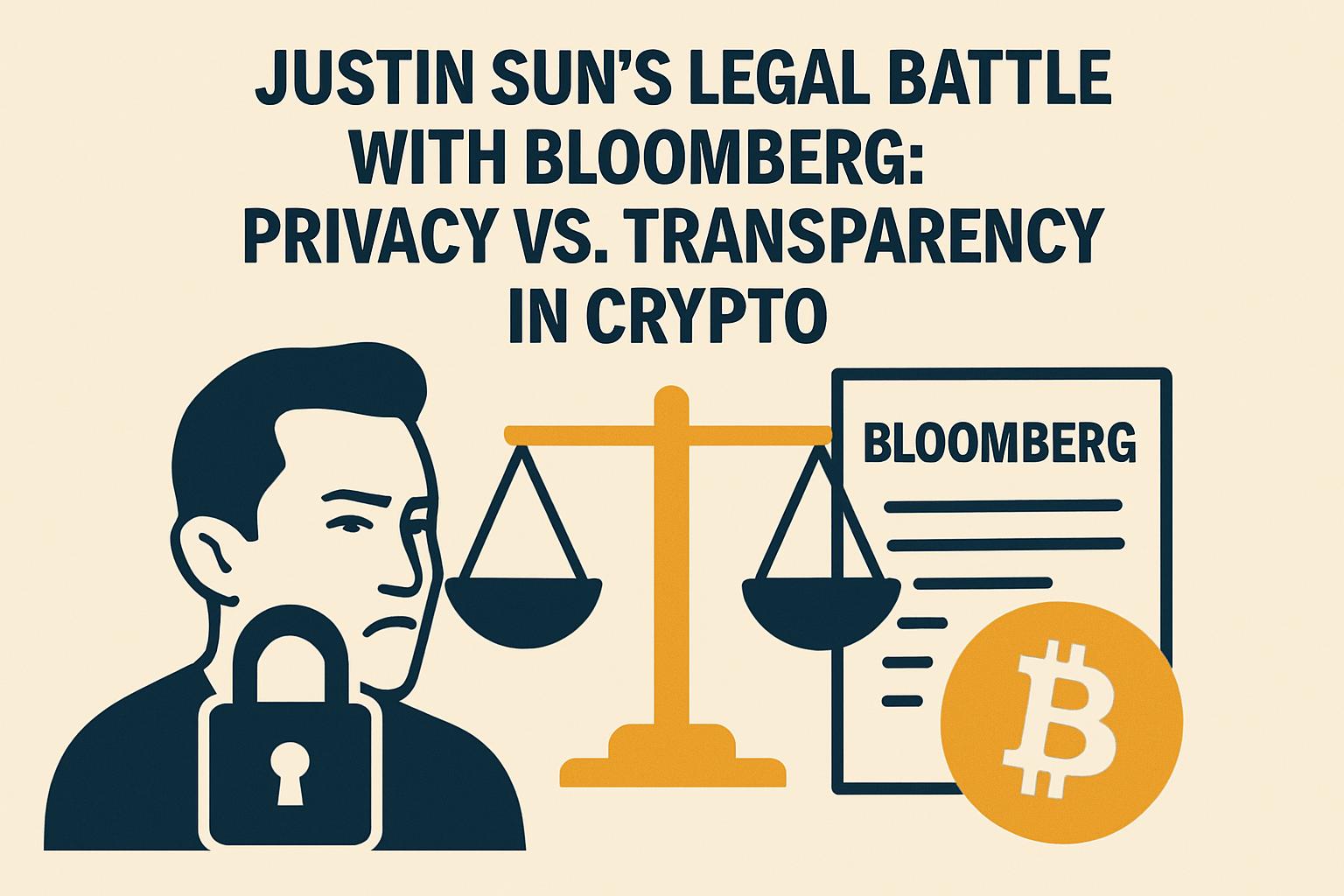In a recent legal confrontation, Justin Sun, the founder of the TRON blockchain, has launched a lawsuit against Bloomberg LP. Sun accuses the media giant of breaching confidentiality agreements by planning to reveal detailed information on his cryptocurrency holdings. Such a disclosure, he argues, could endanger his personal and family’s safety, potentially inviting hacking attempts or even physical threats like kidnapping.
The Bloomberg Approach: Wealth Ranking and Confidentiality Promises
Court documents reveal Bloomberg’s outreach to Sun earlier this year with an offer to include him in their prestigious Bloomberg Billionaires Index. Sun claims that Bloomberg assured him, through multiple communications, that any financial information provided would remain strictly confidential, only to be used for net worth calculations. His understanding, based on these assurances, was that the data would be presented as aggregated figures, without specifics.
Sun provided his wallet addresses and asset data through secure channels, believing it would be used solely for internal verification. However, he was shocked to find later drafts of Bloomberg’s wealth index listing specific cryptocurrencies and amounts, some of which contained inaccuracies.
Impact of Breached Confidentiality
Sun’s concerns underscore a broader tension in the crypto world, where blockchain transparency clashes with privacy needs. The detailed asset disclosure deviates from Bloomberg’s usual handling of other crypto moguls like Coinbase’s Brian Armstrong and Binance’s Changpeng Zhao.
Such precise information makes it easier for on-chain analysts to link wallets to their owners, thereby escalating risks of hacking or physical threats. Past incidents have shown the dangers posed by exposed crypto wealth, including kidnapping and theft, threats Bloomberg itself has reported on.
The Stakes: Legal and Personal Repercussions
Sun’s lawsuit charges Bloomberg with “public disclosure of private facts” and “promissory estoppel,” claiming violations of the confidentiality that led him to share his information initially. He fears irreversible financial and personal harm, given the non-reversible nature of cryptocurrency transactions which can result in instant loss if hacked.
He seeks an injunction to prevent any asset details from being published, legal fee compensation, and a jury trial. Sun emphasizes that this case impacts not just his personal reputation but his business ventures intertwined with his public image.
The Broader Debate: Transparency vs. Privacy in Blockchain
This legal tussle transcends a mere celebrity-media fight. It brings to the forefront a fundamental debate in the crypto industry: how to balance blockchain’s inherent transparency with the need for personal asset privacy. For investors and billionaires alike, transparency builds market trust but also poses a safety risk without proper safeguards.

![[News] Bitcoin at a Turning Point? 10x Research Signals a Bullish Macro Shift Ahead](https://cryptoexplores.com/wp-content/uploads/2025/06/new20250616.jpg)
![[News] Binance Lists $HOME, the Gas-Free, Bridge-Free All-in-One DeFi App](https://cryptoexplores.com/wp-content/uploads/2025/06/news20250617.jpg)